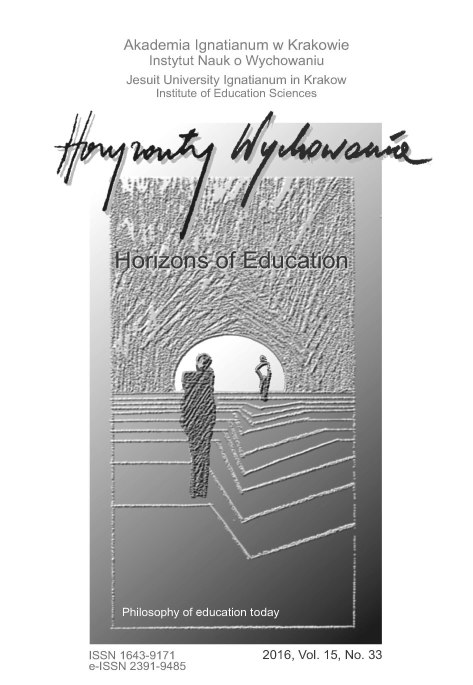Routinen der Vielfalt: Praktiken der Anerkennung im pädagogischen Feld
Routinen der Vielfalt: Praktiken der Anerkennung im pädagogischen Feld
Author(s): Agnieszka CzejkowskaSubject(s): Structuralism and Post-Structuralism, School education, Higher Education , Evaluation research, Social development, Social differentiation, Sociology of Education
Published by: Uniwersytet Ignatianum w Krakowie
Keywords: Philosophy of Education; Schooling; Diversity; Professional Development; Subject Critique;
Summary/Abstract: Research objective: The aim of the paper is to show that the concept of diversity has much more implications for schools and education than commonly assumed. The research problem and methodology: Based on an evaluation research study (formative and summative) involving 20 schools at the elementary and secondary level, which have undergone a federal process of professional development findings are presented, which indicate that we need to be more strategic in terms of our research practices and dissemination when it comes to diversity. The process of argumentation: The paper introduces the concept of a critical theory of professional development in education, which includes the conceptual history approach and post structural points of view. The findings of an evaluation research study are then analysed. The exploration of the connections between diversity discourses and the challenges of the daily organisational and pedagogical routines completes the analysis. Research results: For the results show that diversity management is becoming more and more of an issue. Further crucial points seem to be media relations and the competition between schools. Conclusions, innovation and recommendations: Strengthening the competence of everybody involved and enabling transfer of knowledge is the key. Instead research tends to confront players with what they don’t know and can’t handle, often classifying their working approaches in an offensive way rather then supporting them by acknowledging their expertise in first place. The approach of a Critical Professional Development in Education could be the key.
Journal: Horyzonty Wychowania
- Issue Year: 15/2016
- Issue No: 33
- Page Range: 67-83
- Page Count: 17
- Language: German

